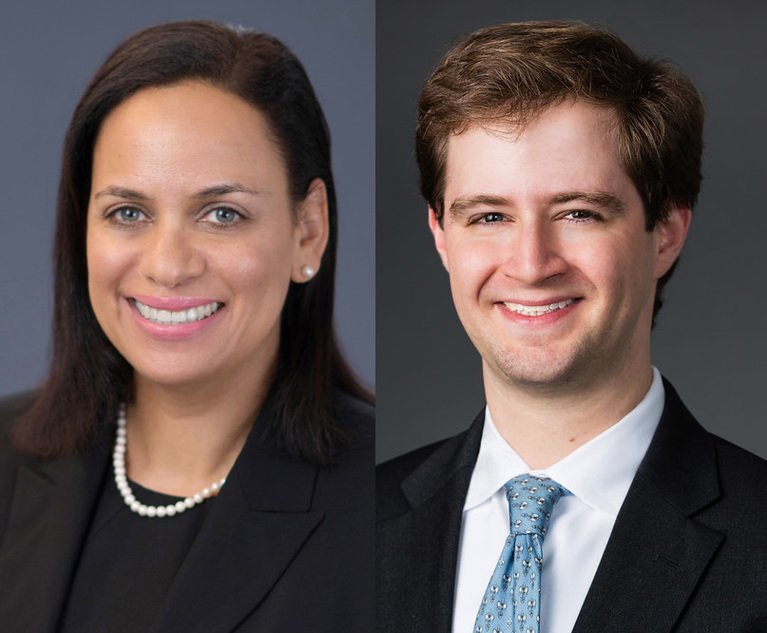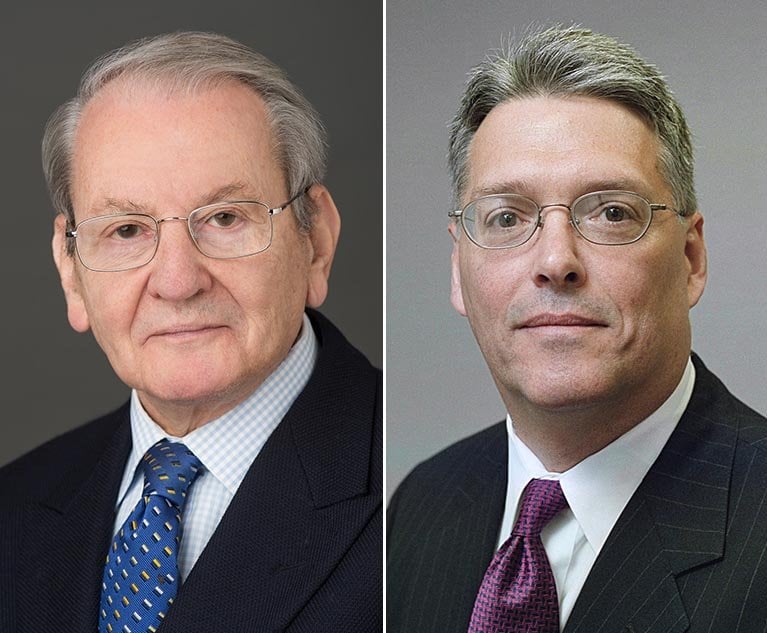
September 07, 2023 | New York Law Journal
Can Continuation Funds Be a Lifeline for Private Equity?In this article, Sonia Bhasin discusses the use of continuation funds as a solution for private equity funds that are nearing or past their expiration date and have unrealized assets in their portfolio.
By Sonia Bhasin
5 minute read

September 07, 2023 | New York Law Journal
2024: Like No Other Presidential Election in Our HistoryIn his Election and Political Law column, Jerry H. Goldfeder addresses the ways in which the 2024 presidential election is already shaping up to be unlike any other in history.
By Jerry H. Goldfeder
5 minute read

September 06, 2023 | New York Law Journal
The Constitution Has Entered the 'Chat': AI Violates the Right to Effective Assistance of CounselThis column addresses how using artificial intelligence in the criminal justice system may be unfairly prejudicial to defendants and violates their constitutional right to effective assistance of counsel.
By Kerianne Morrissey
12 minute read

September 06, 2023 | New York Law Journal
Accessing the Courts: Why New York Should Eliminate The Dreaded, Needless and Unduly Complex 'Certificate Of Conformity'On May 31, 2023, the New York Legislature passed a bill that would eliminate the requirement to notarize affidavits in civil lawsuits. The bill substantially changes how litigants can introduce witness testimony in New York, bringing it in line with federal courts and other jurisdictions that allow witnesses to offer sworn statements by declaring what they say is true "under penalty of perjury."
By Mylan L. Denerstein and Lee R. Crain
4 minute read

September 06, 2023 | New York Law Journal
When Does the Government Have a Claim to Forfeit Untainted Assets?In his Corporate Crime column, Evan T. Barr highlights how circuit courts are split on whether the government can invoke the relation back doctrine regarding substitute assets and how the resolution of that issue, which varies depending on the jurisdiction, affects the rights of innocent third parties.
By Evan T. Barr
11 minute read

September 06, 2023 | New York Law Journal
The Barring of Rent in the Absence of a Certificate of Occupancy—A Rule Still In Need of Much ClarificationIt has long been understood that if a building which is a multiple dwelling does not have a certificate of occupancy, the owner may not maintain a non-payment proceeding for the recovery of rent. Despite the seeming clarity of the rule, issues concerning a lack of this certificate have spawned considerable litigation, often leading to a surprising number of disparate and conflicting results.
By Nativ Winiarsky
11 minute read

September 05, 2023 | Law.com
Eighth Circuit: Written Expert Report Required Where Treating Physician Did Not Form Opinion About Causation During the Course of Providing TreatmentThe Eighth Circuit recently clarified the circumstances in which a treating physician who is offered to provide expert testimony as to the cause of a plaintiff's injury must submit an expert report in accordance with Federal Rule of Civil Procedure 26(a)(2).
By John M. Baker and Katherine M. Swenson
6 minute read

September 05, 2023 | New York Law Journal
A Closer Look at Costs on AppealIn their Appellate Practice column, Thomas R. Newman and Steven J. Ahmuty Jr. highlight the Cost on Appeals statute and discuss the fees and expenses associated with successfully asserting or defending one's rights on appeal.
By Thomas R. Newman and Steven J. Ahmuty Jr.
9 minute read

September 05, 2023 | New York Law Journal
Considerations for Defending Against Federal Civil Asset Forfeiture ActionA discussion of the critical issues that property owners and their counsel should be aware of at the outset of a federal civil forfeiture action.
By Jeffrey Lang and Luke Appling
19 minute read

September 01, 2023 | New York Law Journal
Enforcement of Federal Statutes Under §1983: Focus on TalevskiIn his Section 1983 Litigation column, Martin A. Schwartz addresses how some federal statues are enforceable under §1983 while others are not by focusing on the recent Supreme Court decision in the Health and Hospital Corp. of Marion County v. Talevski case.
By Martin A. Schwartz
9 minute read
Trending Stories
- 1With a 7-Figure Book Deal and TV Adaptation on the Way, This Dechert Associate Remains Committed to Her Day Job
- 2Northwestern University Pritzker Law School Hit With Reverse Discrimination Lawsuit
- 3Biden Will Be First Lawyer-President Without a JD From the 'T-14' in a Century
- 4The Week in Data: A Look at Legal Industry Trends by the Numbers
- 5Settlement reached in lawsuit over death of clerk prior to $51 million jury award
More from ALM
- Morgan & Morgan Class Action Attorneys Detail Pathway to Success Within Cybersecurity and Data Privacy Practice 1 minute read
- Holwell Shuster & Goldberg Partners Leverage 'Hostile' Witnesses to Secure $101 Million Verdict Against Walmart 1 minute read
- Legal Speak at General Counsel Conference Midwest 2024: Mike Andolina, Partner, White & Case 1 minute read



